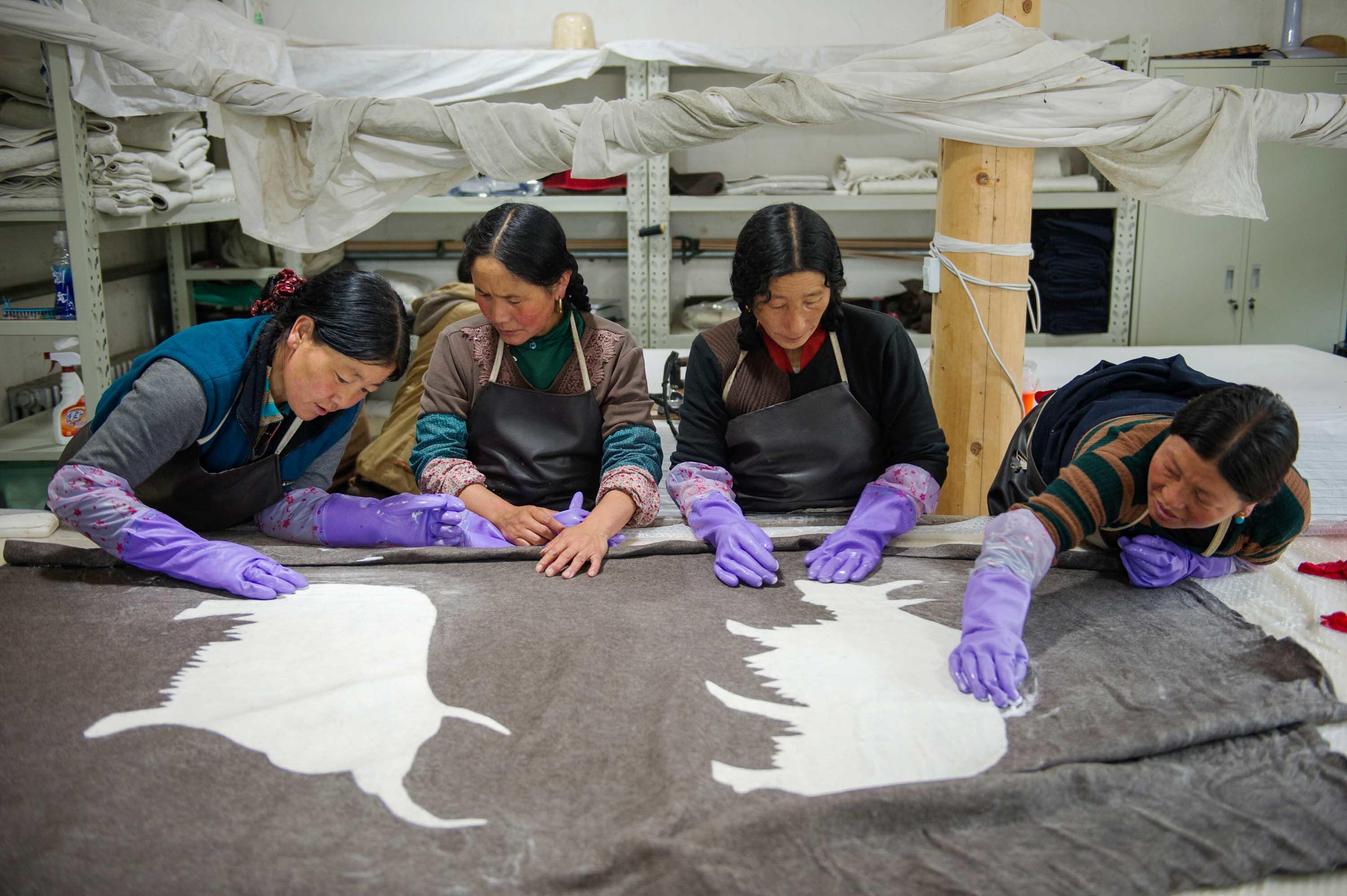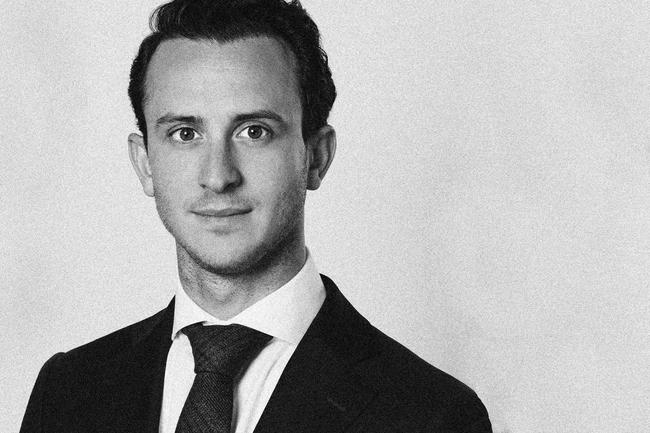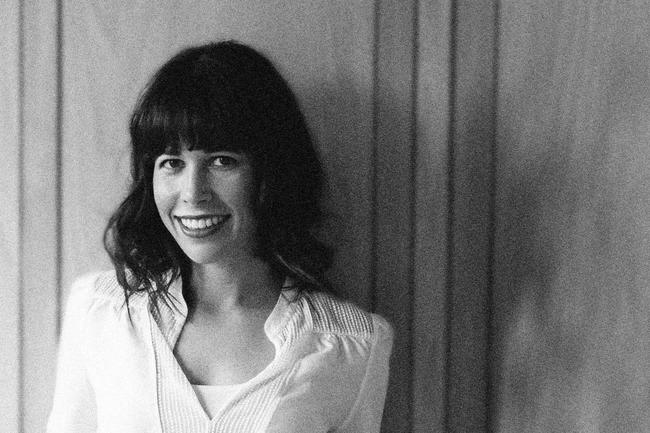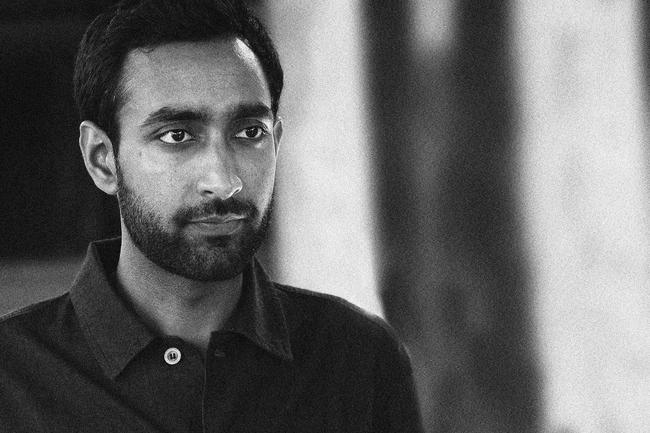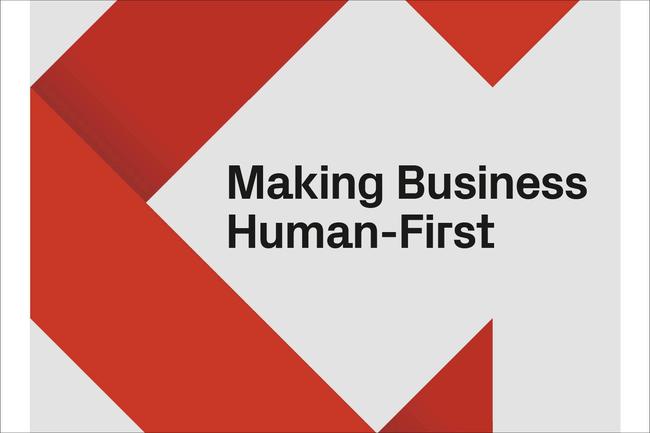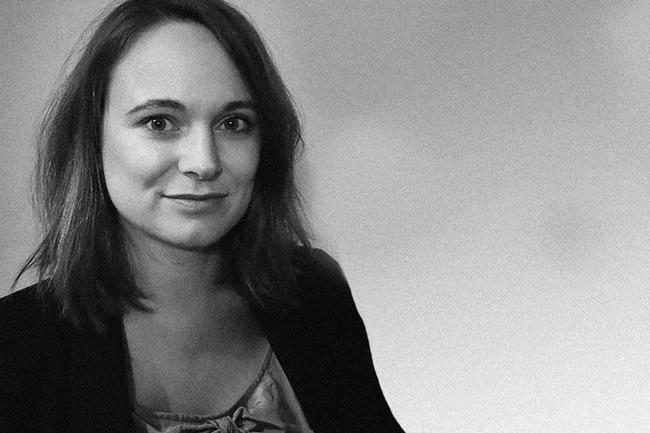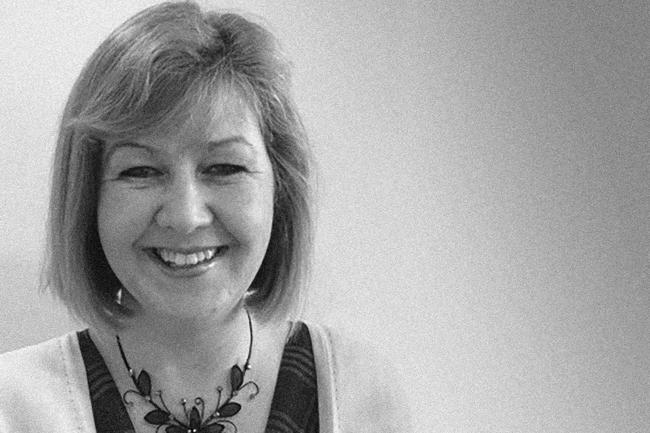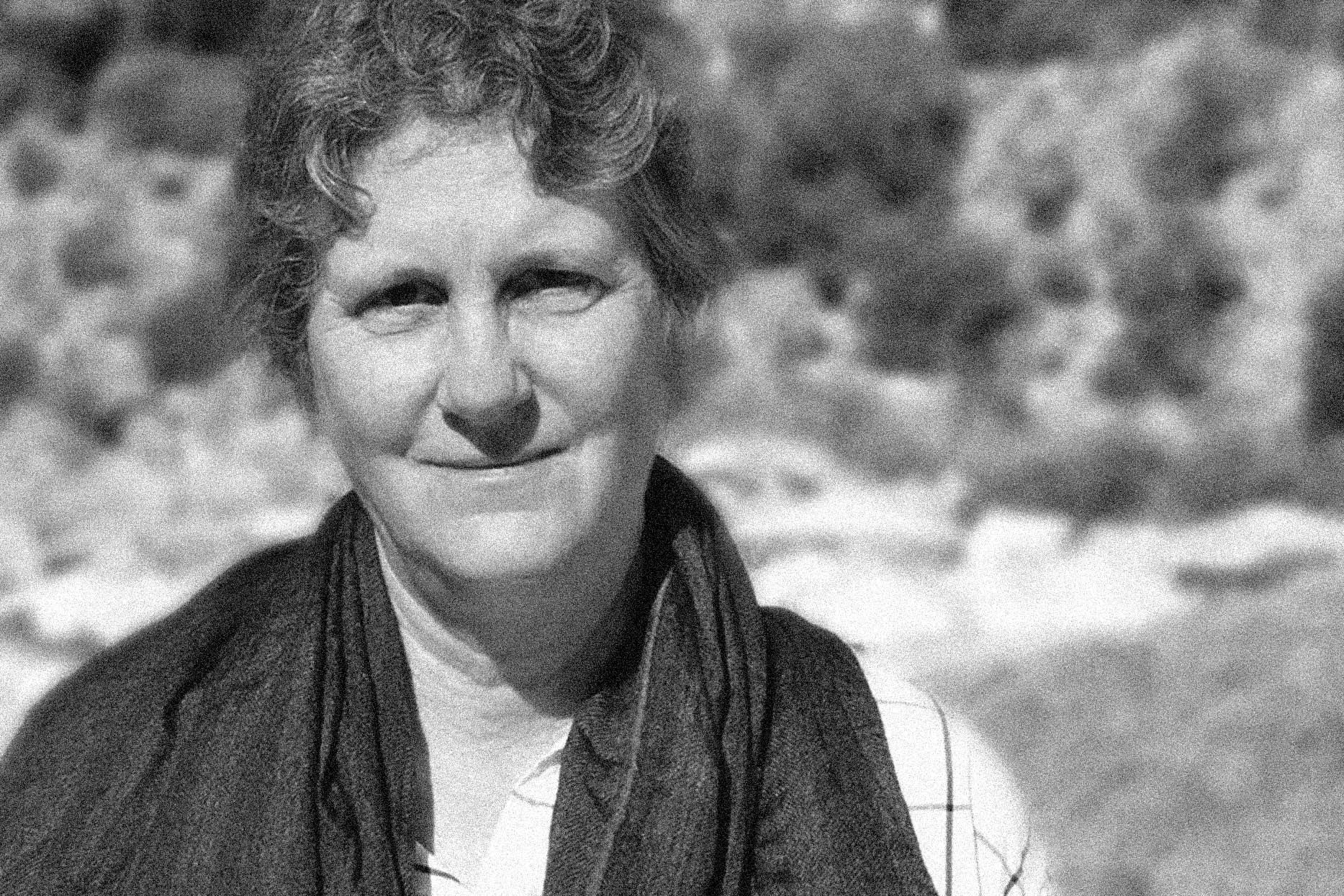
Conversation with Kim Yeshi on her luxury brand and creating a sustainable business in the modern fashion marketplace
It’s not often you speak to someone whose energy and passion stays with you for months after the conversation is over. But that’s the effect Kim Yeshi has. Over the phone from the far reaches of the Tibetan plateau, Kim makes a deep impression; a calm soul achieving incredible things in one of the world’s remotest regions.
As the socially-minded mother in the mother-daughter team behind Norlha Textiles, a luxury brand of yak wool products, Kim’s philosophy is at once uplifting and pragmatic. The brand combines a commitment to community development with a focus on old-fashioned values of quality and timelessness, aiming to prove that social businesses can have a place in the modern fashion marketplace. Launched 10 years ago, Norlha Textiles works with local materials and creates employment for traditional nomadic communities, providing new opportunities and delivering economic security, especially for local women.
We spoke to Kim about her philosophy on fair working conditions, post-recession luxury consumers, and her dream to enable other villages to recreate the success Norlha Textiles built.
What’s your personal approach to sustainable business and how does Norlha Textiles embody that on an everyday basis?
For us, what’s most important is how we treat the people who work for us. When you build a business there are always three elements – the business owner, the makers, and the end customer. What I could see happening a lot was companies where the owners are happy because they make money and the customers are happy because they feel they’re getting a good deal. But the people who make the product are in between, getting squeezed, and there’s really no regard for them. And I feel that’s the basis of all these companies which keep looking for cheaper and cheaper places to work. They don’t have factories in the countries they come from – for example, if you’re Swedish you don’t produce in Sweden. They outsource to places where it’s as cheap as possible so the customer can get a € 20 dress. We work with a small number of people, 120 employees, which is very small when you think of a big company. If you want to do that and pay people well, to take that middle factor and give it importance, then your product becomes more expensive. And if it becomes more expensive it has to be something people want to buy because we’re not an NGO, we work through the laws of the market. You supply to some high-end global fashion labels.
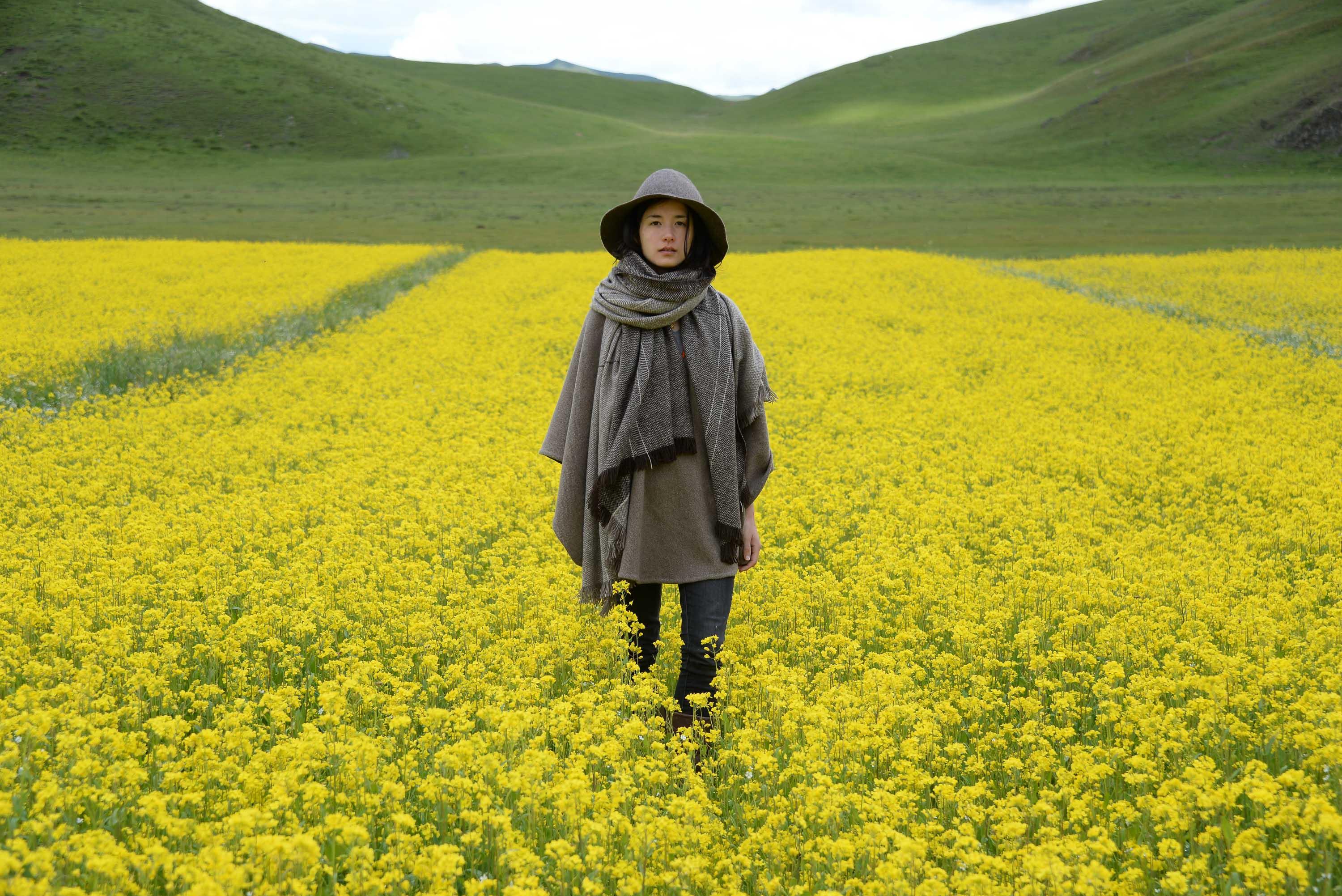
How do you justify the higher cost of your products to them?
I don’t justify anything, I just go to them and ask whether they want a certain product and if they think it’s worth it, they’ll buy it. We’re not trying to sell ourselves in a social way, we’re playing the real game. Labels buy it because they want your product, that’s the only way you’re going to make it in business. And the story is going to be an added benefit that they can pass on. Some clients aren’t interested [in the story] but we’ve stopped working with most of those clients now. We felt we have a story and a very special product and it was getting drowned by their whole thing and we weren’t appreciated. So about three years ago, we tried to launch our own brand and we’re now doing direct sales, which is much more profitable for us. That way people can get the story and the product.
So is the story more important for your direct customers than retail customers, or are they still just looking for a great product?
Of course. The product is selling but then people like the story, so the story kind of illuminates the product. It’s a product with a real story but it’s also a real product. Some people have a great story but not much of a product and they use the story to sell it, but we have both. So we use that to build a customer base, which we’ve started doing through our website. We’ve done a lot of work and it’s been really growing. We’re putting all our effort into that now.
There’s a lot of talk about transparency and how consumers should be more aware of where their products come from. Do you think that’s important?
If we talk about our product and all the qualities and characteristics it has, this gives the client more reason to appreciate it, and I think it’s important to educate the client when they’re holding something of a great quality. You want to be able to tell them why that product is so great and usually they’ll be interested to hear about it as they have to spend quite a bit of money on it. That’s why by selling directly we can be even more transparent and it’s in our interest to do that. We’ve got nothing to hide, on the contrary, we want people to know so they can realise what justifies the money they’re paying and what makes it something they can truly cherish.
Have you seen any shifts in the way your retail and direct customers interact with the products they’re buying? Very much so. After the financial crash, instead of losing clients, we actually gained them because people started turning away from very glitzy things and looking for more true value. Customers felt that if they’re going to spend money they want to spend it on something real. And we found we were able to build our first customer base on that concept. I think people got a bit disgusted with brands that are just names and there’s nothing behind them. People who have a lot of money can buy anything, but then all of a sudden they want to buy something they feel is real. And they started going back to the old values of real quality, when people spent a chunk of money on something they truly valued and wanted to keep for a long time. This is something that doesn’t exist in fast fashion. You buy a few things and you keep them forever, that’s what it was like when I was a child. So it’s kind of bringing back that concept.
So what’s next for Norlha Textiles? What keeps you moving forward?
We’re already fairly vertically integrated, we only really buy the raw material. But we’d like to build on this, which includes the cleaning process, the de-hairing, the spinning. We’d like to do that ourselves, so we can control the quality even more and become even more unique. So we’re trying to raise some funds for that. And we’re hoping we can inspire people in other villages to invest in building small factories like ours. Then we could help them by giving them products to make and marketing those products, because the problem is they don’t know how to market, how to set up a managerial structure. We’re constantly being approached by people who want to set up a factory in their village but they have no idea how to do it. We’d like to have a role where it enables other people to provide employment, as that’s the biggest need in villages.
Photo credit: Norlha Textiles


